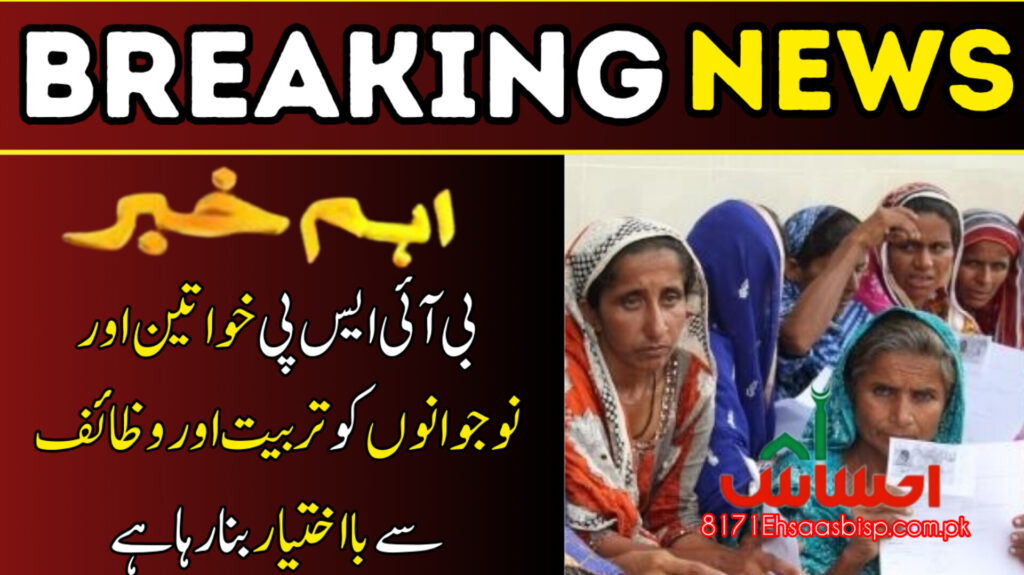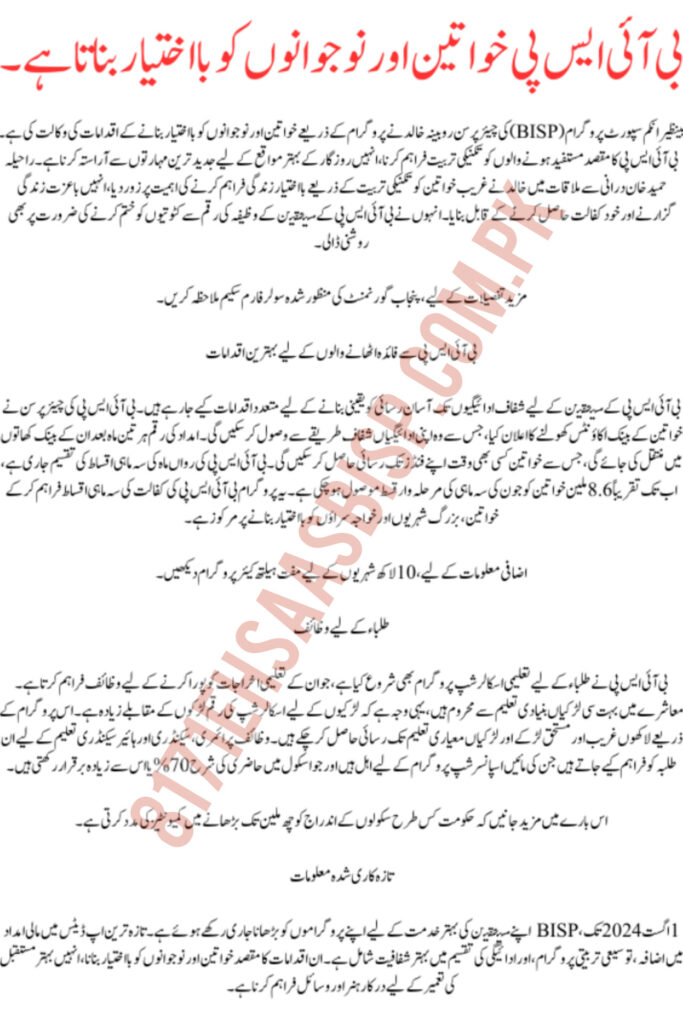
Empowering Women and Youth through BISP
Rubina Khalid, the chairperson of the Benazir Income Support Program (BISP), has been a strong advocate for empowering women and youth through this vital initiative. BISP aims to offer technical training to its beneficiaries, equipping them with the latest skills to secure better employment opportunities. In a recent meeting with Rahila Hameed Khan Durrani, Khalid emphasized the significance of empowering poor women through technical training, enabling them to earn a dignified livelihood and achieve self-sufficiency. Additionally, she underscored the necessity of eliminating deductions from the stipend amounts provided to BISP beneficiaries.
Key Initiatives for BISP Beneficiaries
To ensure easy access and transparency in payments, BISP has introduced several initiatives. One significant development is the opening of bank accounts for women beneficiaries, allowing them to receive their payments transparently. Aid amounts are transferred to these accounts every three months, enabling women to access their funds anytime. The distribution of the current quarter’s BISP installments is ongoing, with approximately 8.6 million women having received their phased June quarter installment so far. This program is designed to empower women, senior citizens, and transgender individuals by providing quarterly financial support.
Scholarships for Students
BISP has also launched an educational scholarship program to support students with their educational expenses. Recognizing the disparity in educational opportunities, particularly for girls, the scholarship amount for female students is higher than that for male students. This initiative has enabled millions of underprivileged boys and girls to access quality education. Scholarships are available for primary, secondary, and higher secondary education to students whose mothers are eligible for the sponsorship program and who maintain a school attendance rate of at least 70%.

Recent Updates and Enhancements
As of August 1, 2024, BISP continues to enhance its programs to better serve its beneficiaries. Recent updates include increased financial aid, expanded training programs, and improved transparency in payment distribution. These measures aim to empower women and youth, providing them with the skills and resources necessary to build a better future.
See Also:
- Breaking News: How to Apply for the Agriculture Internship Program: A Detailed Guide 2024
- Exclusive Updates: Punjab Government Announces Major Recruitment Drive for 30,000 Teachers 2024
- Breaking News: Sindh Textbook Board Launches Ambitious Tablet Distribution Initiative for Students 2024
- ASF Jobs Apply Before August 25, 2024 – Complete Guide
- Exclusive News: Huawei Train the Trainer Program: A Groundbreaking Initiative for Pakistani Students in 2024
FAQs
What is BISP?
The Benazir Income Support Program (BISP) is a social safety net initiative in Pakistan designed to provide financial assistance to low-income families.
Who is eligible for BISP?
Eligibility primarily includes low-income households, with a particular focus on women, senior citizens, and transgender individuals.
How can I apply for BISP?
Applications can be submitted through the official BISP website or by visiting a local BISP office.
What documents are required for BISP registration?
Required documents typically include:
- National Identity Card (CNIC)
- Proof of income
- Any additional documents specified by the program
Is there a fee for BISP registration?
No, registration for BISP is free of charge.
How are BISP payments made?
Payments are made quarterly and transferred to the beneficiaries’ bank accounts.
Can students receive scholarships through BISP?
Yes, BISP provides scholarships for primary, secondary, and higher secondary education.
What criteria must students meet to receive BISP scholarships?
Students must maintain a school attendance rate of at least 70% and have mothers who are eligible for the sponsorship program.
What initiatives does BISP have for women and youth?
BISP provides technical training and opens bank accounts for women to empower them economically.
Where can I find more information about BISP?
Visit the official Ehsaas Program website for more details and updates.
Conclusion
The BISP initiative continues to make significant strides in empowering women and youth through training and educational scholarships. By providing financial support and skill development opportunities, BISP is helping beneficiaries achieve self-sufficiency and improve their quality of life. These efforts are part of a broader strategy to create a more inclusive and economically stable society.
